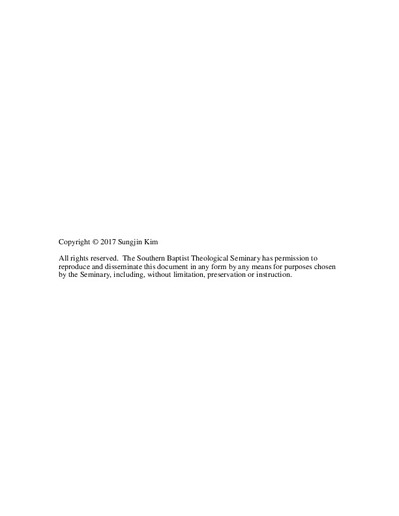The Identity of the Spirit (rûªh) in Eliphaz’s Vision (Job 4:12-21) and Its Significance for Understanding the Book of Job
Subject
Bible. JobAbstract
This monograph argues that the most plausible candidate for the spiritual visitor in Eliphaz’s vision (4:12-21) is Satan, who not only afflicts Job in the prologue (1:1-2:10), but also exerts his influence in the speeches of the friends and Elihu. Satan’s message (4:17-21) functions as a central premise of the speeches of the friends and Elihu, leading to a false denunciation of Job as a sinner. Eliphaz (15:14-16) as well as Zophar (20:2-8), Bildad (25:4-6), Elihu (33:15-17, 19-21, 23-28; 34:7; 36:10, 15) continually rely on the vision’s authority and message in their counsel to Job. As a result, Job remains innocent throughout the dialogues, and his integrity is further confirmed as God in a theophany reveals to him the real cause of his suffering and God’s resolution to the problem of evil (chs. 38-41). In addition, Satan’s prominent role in the book, coupled with the innocent sufferer theme, makes the book apocalyptic wisdom literature. Satan’s challenge in the prologue and his malicious influence throughout finally meet an apocalyptic climax as Satan reappears on the scene as the serpent Leviathan, upon whom God pronounces his ultimate punishment. Job, on the other hand, finds consolation (42:6) and vindication in God (42:7), and finally enters God’s restoration and bliss (42:10-17). The book thus is organically connected as a literary whole with a coherent message about the righteous sufferer and the apocalyptic resolution to the problem of evil.

